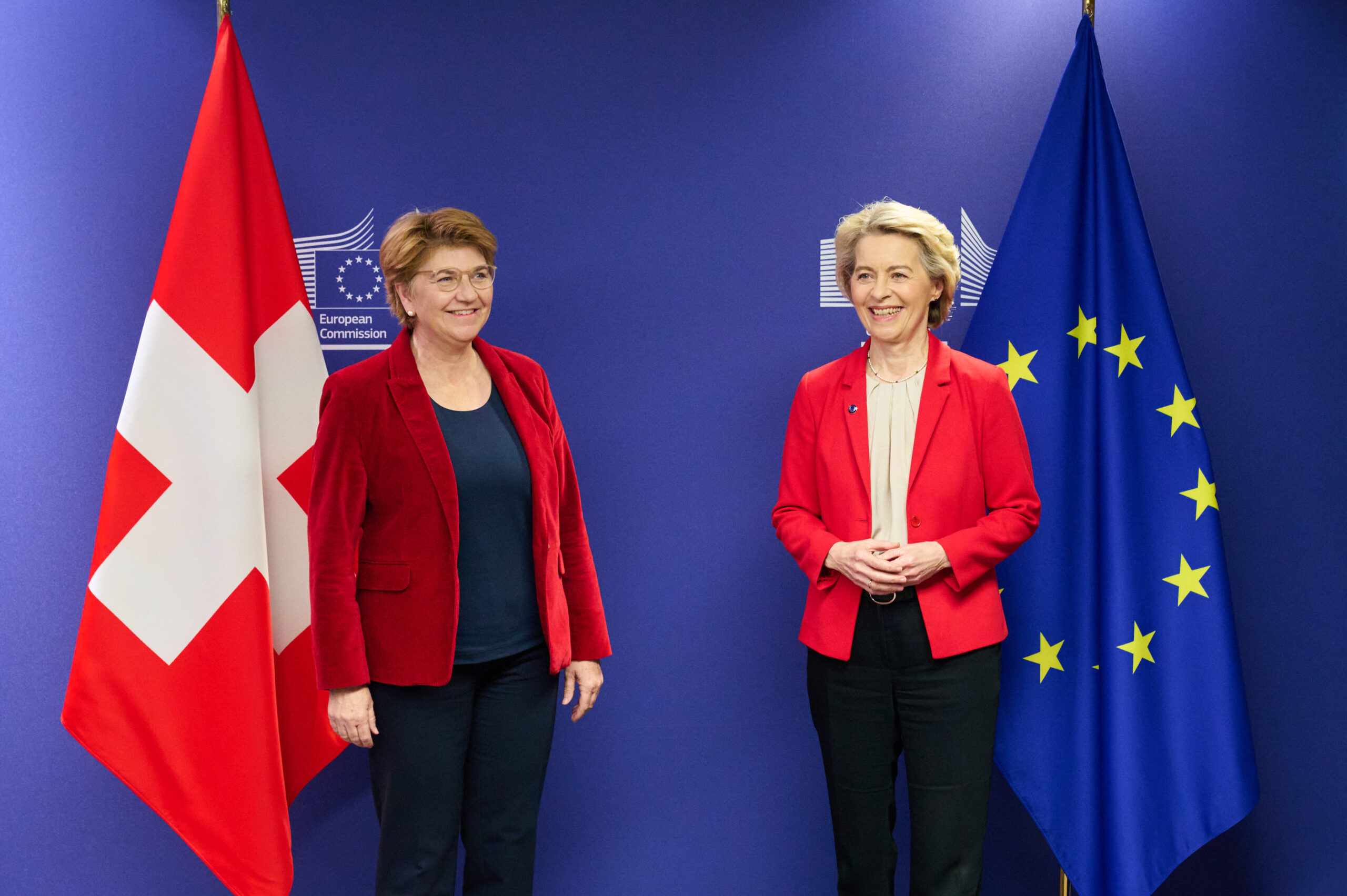
Switzerland and the EU reach an agreement to improve trade relations
On Friday, Switzerland and the European Union announced that they had come to an agreement to improve trade, allaying Swiss fears over immigration and paving the way for the largest reshaping of bilateral relations in decades.
The collaborative talks, which started in March, covered controversial topics of sovereignty including how to settle disagreements between Swiss and EU law in a roughly $300 billion ($338 billion) bilateral trading relationship.
The agreement is an improvement over the previous attempt, which failed in 2021 when Bern abruptly withdrew, even though it will face significant tests prior to ratification. As the EU attempts to overcome Britain’s 2016 vote to leave the bloc, it also gives it a boost.
The political accord was revealed at a joint news conference in Bern by European Commission President Ursula von der Leyen and Swiss President Viola Amherd.
“Today is a milestone for the stabilization and further development of bilateral relations,” stated Amherd, who is the head of the Federal Council, Switzerland’s eight-member government.
Von von Leyen called the deal “historic” and crucial in light of geopolitical pressures, since it could lead to a surge in Swiss financial contributions to the bloc in the coming years.
“In Switzerland as well as in our 27 member states, in this challenging environment, strong partnerships like ours are not just an advantage, they are a must,” she added.
In Switzerland, which is richer per capita than the majority of the bloc’s member states, the agreement includes everything from power to public aid, transportation, and freedom of movement. It sets the stage for a difficult ratification procedure.
The agreement states that, during a transitional period through the end of 2029, Switzerland’s yearly payment to the EU will remain at 130 million Swiss francs ($145 million). The Swiss government stated that it will increase to 350 million francs by 2036 from 2030.
The foundation of Switzerland’s economic relations with the present-day EU was a free trade agreement signed in 1972 that was later extended by several further agreements. But those agreements have started to deteriorate, and some are about to expire as Europe revises its own laws.
AVOIDANCE OF NEARER LINKS
The main focus of the talks has been reaching an agreement on “dynamic alignment” of laws, which requires Switzerland to modify its laws to reflect pertinent continuing changes in EU law while maintaining its own constitutional protections.
Switzerland negotiated a system with the EU that would allow it to regulate immigration from the bloc in special cases, pending a joint arbitration process.
The right’s worries about population growth and the left’s worries about the erosion of wage rights are driving the resistance to the Swiss government’s deeper connections with the bloc.
Strong opponents are organizing to oppose the new agreement, which still needs to be approved by the Swiss and European parliaments. It is also almost guaranteed to be put to a public referendum in Switzerland.
The deal, which might go into effect in 2028 or 2029, will assist Switzerland in the areas of research, health, and air freight, according to European Trade Commissioner Maros Sefcovic.
He stated that the two sides’ ties would probably deteriorate if the deal was not accepted.
“Our cooperation would over the time be smaller, would degrade, would be more difficult,” Sefcovic added.
$0.8940 Swiss francs is equal to $1.
All Categories
Recent Posts
Tags
+13162306000
zoneyetu@yahoo.com



